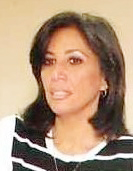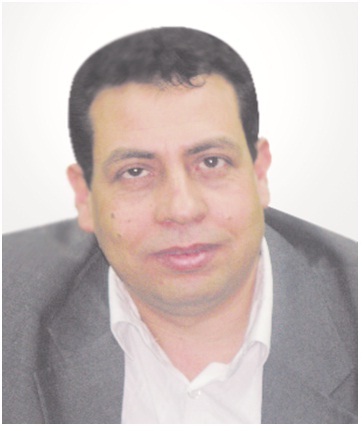By Philip Whitfield
ALEXANDRIA: Casting their long rods, lines and bait into the Mediterranean, fisher folk are taking advantage of the season’s neap tides. Gentle waves lap the rocks and the sea wall along the Corniche.
The snapper and sea bass are plentiful, enough for dinner and more.
One says it may be his last fishing season. Omens threaten.
The political future will not be decided in Tahrir Square, much as the Cairo protesters wish. Cairo accounts for less than a quarter of the electorate. The nation as a whole will make the decisions that will determine the outcome of the revolution.
Being the loudest voice affects the media, says one informed political observer. The squeaky wheel gets attention, but eventually becomes an annoyance.
Only four out of 10 eligible voters took up the opportunity to vote in the referendum. Cairo’s liberally inclined voters were relatively evenly balanced between holding the referendum sooner than later (59 percent).
Alexandria was one of the most inclined cities for an early vote (67 percent) and the rural areas were 90 percent in favor.
The higher the vote in favor, say political analysts, is an indicator of greater support for the Muslim Brotherhood.
Putting off the election until the end of the year is a compromise that gives new parties time to gel.
It’s understandable for the middle class to be adrift. No political party or leader has emerged with centrist, conservative economic policies to their taste. That is certain to change, they say here.
While Cairo boils, Marina and the North Coast broil. Conversation has turned to politics. The search is beginning for a moderate leader to reflect their concerns, which focus on security, stability and an end to corruption.
More than anything they are skeptical that the election when it comes will be a fair reflection of their wishes. They suspect the result will be manipulated in the count.
Many see their businesses in tatters. Some say they will not be able to continue with the private education they have paid for.
They fear the consequences of their kids and grandchildren being exposed to what they describe as the tyranny of state schools. That is a real issue for us in 2012, a couple says.
Moreover, they fear the backlash on their civic standing. We’ve worked hard, paid our taxes; we have never been on the wrong side of the law, they say. We have brought our children up to respect Islam, but also to respect people of all religions.
They tell a story. Their grandmother lived in a three-flat building in Alexandria. The apartments were spacious — 2,000 sqm. On the ground floor the family was Jewish. On the middle floor they were Christian and on the top floor a Muslim family lived in harmony with their neighbors.
When the daughter of the Muslim family approached her wedding, to be held on the roof, the Jewish family said they would provide the cake, a traditional Jewish dessert. As they gathered to bake the cake, the oven exploded, seriously wounding the Jewish grandmother.
Please say nothing to the bride, they pleaded. She has grown up as a daughter to us. She must not know what has happened. We will make the cake elsewhere. The Christian family agreed and they helped provide the festive fare.
The wedding took place. The badly injured Jewish grandmother died in hospital just after the wedding took place. The bride was kept in ignorance.
When she learned of the circumstances, she put off her honeymoon and went to the funeral.
They told me this happened some years ago. Over the years we have seen society change. Communities have polarized. It is not possible to be seen to be fraternizing with people of different faiths, they said.
Here there is more concern than is expressed in Cairo about the likely outcome of the elections. The Muslim Brotherhood is strong, well organized and disciplined. The ultra-orthodox Islamist Salafi is becoming more visible.
We’d never heard of the Salafi until January, a long-time resident of Alexandria says. The youth are disorganized and this week they’ve been in a good-humored mood.
You can spot the Brothers straightaway, he says. When the Brothers arrive their leaders keep them in line. It seems they have a mission and a plan.
How so?
For decades they have been providing schooling and social services for the poor, which amount to almost 50 percent of the people. They hand out food and when people have no money they give them as much as LE 100.
Now it’s payback time. The poor expect to be asked to vote for the Brotherhood and they will.
What impact will that have?
The Brotherhood will win a large number of seats in the People’s Assembly. De facto they will be the governing party when they sew up alliances in parliament.
What is the middle class doing?
There isn’t a party that appeals to them as yet. Also they are victims of their affluence. They drive to work, do their jobs and drive home. Since the revolution they haven’t been going out much. They are confined to associating with their families and a few friends.
In Alex, they don’t dare to be seen protesting and joining demonstrations.
They fear gangs following them home and attacking them, they said.
The overriding consideration in planning the elections is to prevent a fraudulent result. That’s why it is imperative to allow independent observers to monitor both the polling and the counting of votes. An expert in these matters from Sweden says there’s now time to make these arrangements.
Egypt should swallow its pride. It is more important for the parliamentary election and the presidential contest for the voting procedures to be given a clean bill of health. Otherwise the aggrieved parties have carte blanche to brand them fraudulent and to take to the streets.
In that event the military will retain power.
Philip Whitfield is a Cairo-based writer. He can be reached at [email protected] or twittered @mohendessin.



